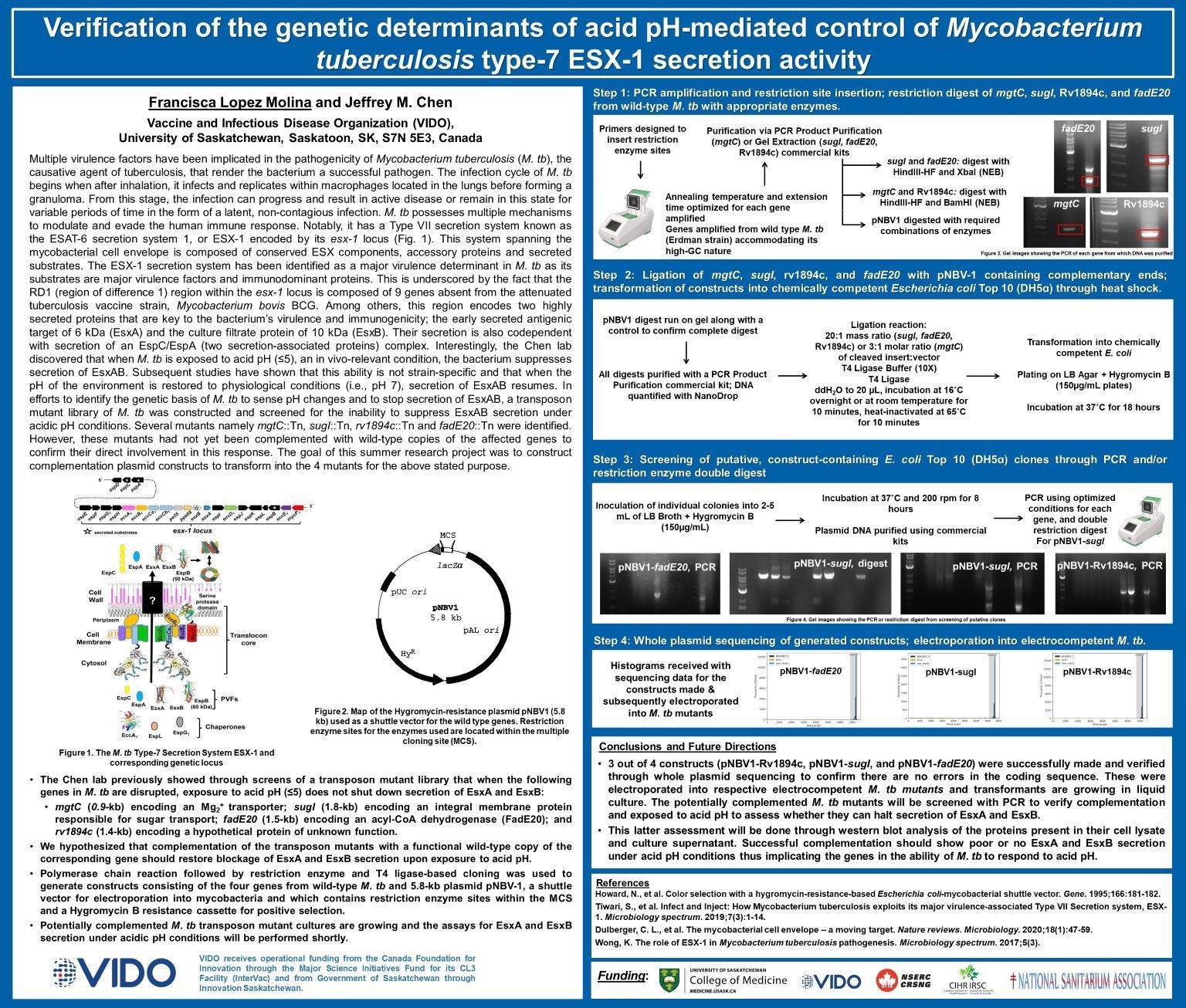
Verification of the genetic determinants of acid pH-mediated control of Mycobacterium tuberculosis type-7 ESX-1 secretion activity
Francisca Lopez Molina
The Type VII ESAT-6 secretion system 1 (ESX-1), spanning the cell envelope of Mycobacterium tuberculosis (M. tb), is a key virulence factor involved in evading and modulating the host immune response. It facilitates the secretion of multiple proteins, including the highly immunogenic proteins EsxA and EsxB. Wild type M. tb possesses the ability to reversibly suppress secretion of EsxA and EsxB when exposed to acid pH (<5). An M. tb transposon mutant library screen showed that interruption of four genes (mgtC, Rv1894c, sugI, fadE20) renders M. tb unable to cease secretion in acid pH. Four constructs consisting of a functional copy of these genes were cloned into a vector (pNBV1) using PCR and restriction enzyme cloning, to complement the M. tb transposon mutants and assess whether these genes are responsible for their ability to sense pH changes and halt secretion. Three constructs (Rv1894c-pNBV1, sugI-pNBV1, fadE20-pNBV1) were successfully made and verified by whole plasmid sequencing. These were electroporated into M. tb transposon mutants, but due to the slow-growing nature of Mycobacterium species, the transformants are currently growing. Immunoblot analysis of culture supernatant proteins secreted by the complemented mutants in acid pH will be used to assess reversion to the wild-type phenotype.
